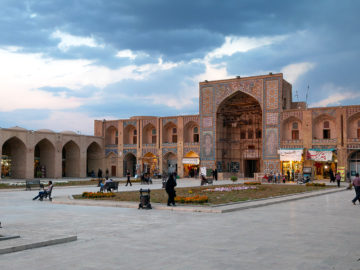
Ganj Ali Khan Complex
The construction of the Ganj Ali Khan complex was ordered by Ganj Ali Khan, the ruler of Kerman at the time of the Safavid Dynasty (1501-1736) and its plan was suggested and implemented by architect …
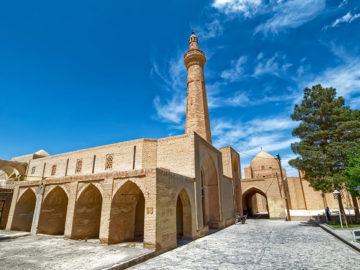
Jameh Mosque of Nain
The Jameh Mosque of Nain is one of the early mosques in Iran, located in Nain City, Isfahan Province, which belongs to early Islam in the 9th century but it is still in use.
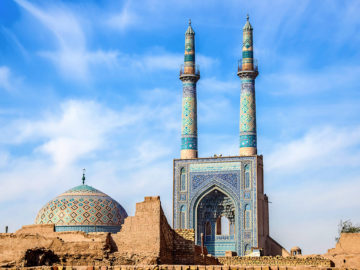
Jameh Mosque of Yazd
The magnificent Jameh Mosque of Yazd City that took over 100 years to be built encompasses three historical architectural periods.
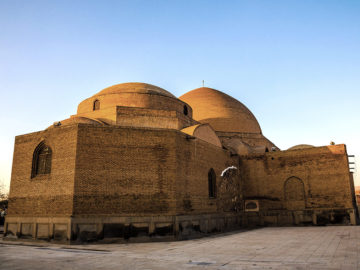
Blue Mosque (Kabud, Kabood)
In 1780, in the aftermath of an earth quack in Tabriz City the mosque was heavily damaged such that almost all of its constructs except for its Iwan (entrance hall) were ruined.
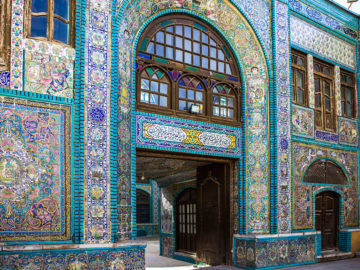
Takieh Mo’aven ol-Molk (Tekyeh Moaven al-molk)
The Tekieh (Tekyeh) is located in Kermanshah used for mourning processions and rituals held in the month that Imam Hossein died. It has halls of Abassieh and Zeinabieh, and a Mosque.
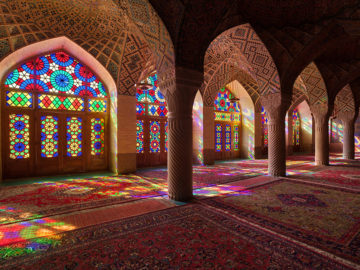
Nasir Ol Molk Mosque
The mosque is in Shiraz, built in the 20th c. by the order of governor and famous for its windows that are filled with colored glasses that reflect light in different shades of red and …
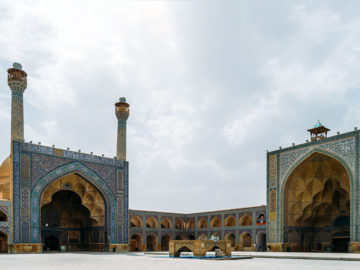
Masjed-e Jameh of Isfahan (Jameh Mosque)
The initial building of this mosque was constructed during Seljuq Empire which is a production of the Iranian architecture for 15 centuries
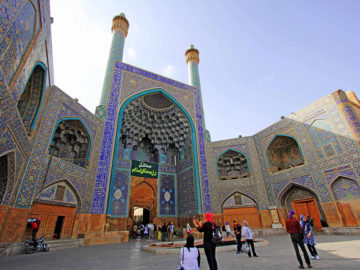
The Royal Mosque (Shah Mosque)
The mosque is part of the Naqsh-e Jahan Square, it is one of the biggest mosques of Isfahan built in Safavid time with Haft-Rang Tile and a deviation of direction to face the Kiblah.
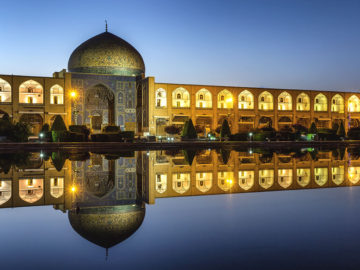
Sheikh Lotfollah (Lotf Allah) Mosque
Shah Abbas I of the Safavid Dynasty ordered the construction of this mosque in 1602 and was completed in 1619 and he named it after a clergyman of Lebanese nationality called Sheikh Lotfollah.
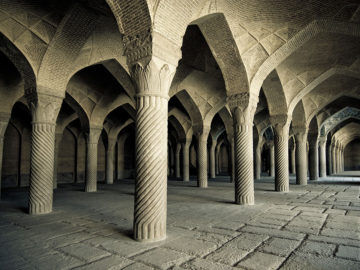
Vakil Mosque
It is part of a complex that includes Bathhouse and Bazaar as well, made in the Zand Era by the order of Karim Khan at the heart of Shiraz City with a 4-Iwan plan.
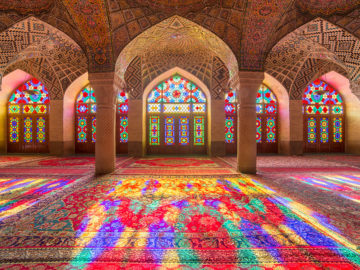
Iranian Architecture
Iranian architecture can be studied in two eras, pre-Islamic era (divided into two styles of Parsian and Parthian) and post-Islamic era
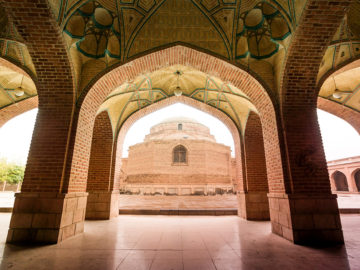
Iranian Mosque
Mosque is a holy place where Muslims worship God and it is also one of the most important buildings in Islamic architecture of Iran.
